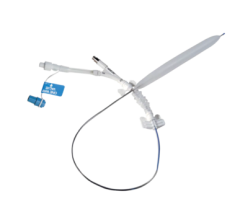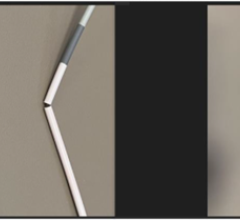
March 9, 2017 — Medtronic plc announced the launch of the IN.PACT BTK study to evaluate the effectiveness of a drug-coated balloon (DCB) in patients with below-the-knee (BTK) peripheral arterial disease (PAD). This study will evaluate the IN.PACT 0.014 paclitaxel-coated percutaneous transluminal angioplasty (PTA) balloon catheter. This is an investigational device, which uses Medtronic’s IN.PACT Admiral drug coating technology.
Antonio Micari, M.D., of Maria Cecilia Hospital in Cotignola, Italy, performed the first procedure on a patient with critical limb ischemia (CLI). Micari reports the first patient is doing well post-treatment.
“The first patient enrollment in the IN.PACT BTK study marks a landmark milestone in identifying a treatment option for below-the-knee PAD,” said Micari. “Given the chronic nature and co-morbidities of this disease, there is a critical need for treatment options that are safe and durable. I look forward to continuing patient enrollment to evaluate the use of this DCB in treating this challenging disease state.”
CLI with PAD below-the-knee is associated with risk of non-healing wound ulcers and amputation. This complex disease is one of the most significant clinical challenges for physicians in the clinical vascular community.
“Patency rates after conventional balloon angioplasty can be challenging in BTK disease, and we believe that a sustained patency could improve healing and reduce the need of target lesions revascularization (TLR) and major amputation,” said Francesco Liistro, M.D., chief of cardiovascular intervention at San Donato Hospital, Arezzo, Italy. “Multiple studies have evaluated DCBs in the superficial femoral arteries (SFA), but the need for clinically supported treatment options for below-the-knee PAD still remains. We look forward to participating in this significant trial to evaluate the IN.PACT 0.014 DCB in a complex CLI patient population, particularly given the strong evidence for use of IN.PACT Admiral in the SFA.”
The IN.PACT BTK study is a prospective, randomized, multi-center study that will enroll approximately 60 patients at four sites in Europe. The study’s primary endpoint is late lumen loss at nine months, an important angiographic measure of drug effectiveness, in patients who received treatment with the IN.PACT 0.014 DCB compared to standard PTA. The study also includes a wound care protocol, which provides additional safety controls and ensures patients will routinely undergo routine and standard monitoring by qualified wound care professionals.
Medtronic partnered closely with the clinical community to further understand the complexity of this disease state and build on the emerging body of scientific knowledge regarding use of DCBs below-the-knee. This includes findings from Medtronic’s IN.PACT DEEP trial, which used an earlier balloon technology. Additionally, at the 2016 Transcatheter Cardiovascular Therapeutics meeting (TCT 2016), Juan F. Granada, M.D., presented pre-clinical data on wound healing in a porcine model. The findings indicated that the use of the IN.PACT Admiral drug-coated balloon in the SFA territory does not delay wound healing despite measureable concentrations of paclitaxel in the adjacent cutaneous tissue.
The IN.PACT 0.014 DCB is an investigational device being evaluated in Europe and does not have an approved Investigational Device Exemption in the United States.
For more information: www.medtronic.com


 June 13, 2024
June 13, 2024 









